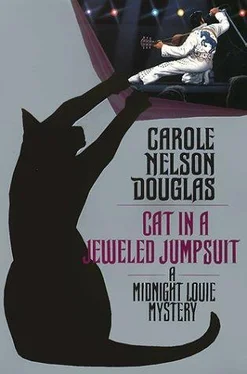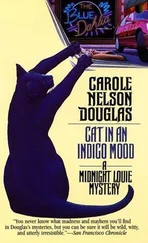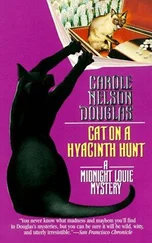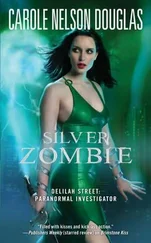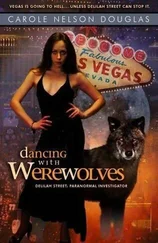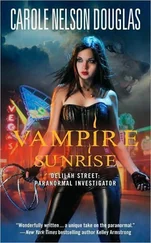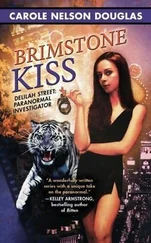Carole Douglas - Cat in a Jeweled Jumpsuit
Здесь есть возможность читать онлайн «Carole Douglas - Cat in a Jeweled Jumpsuit» весь текст электронной книги совершенно бесплатно (целиком полную версию без сокращений). В некоторых случаях можно слушать аудио, скачать через торрент в формате fb2 и присутствует краткое содержание. Год выпуска: 2000, ISBN: 2000, Издательство: Thorndike Press, Жанр: Старинная литература, на английском языке. Описание произведения, (предисловие) а так же отзывы посетителей доступны на портале библиотеки ЛибКат.
- Название:Cat in a Jeweled Jumpsuit
- Автор:
- Издательство:Thorndike Press
- Жанр:
- Год:2000
- ISBN:9780786224555
- Рейтинг книги:5 / 5. Голосов: 1
-
Избранное:Добавить в избранное
- Отзывы:
-
Ваша оценка:
- 100
- 1
- 2
- 3
- 4
- 5
Cat in a Jeweled Jumpsuit: краткое содержание, описание и аннотация
Предлагаем к чтению аннотацию, описание, краткое содержание или предисловие (зависит от того, что написал сам автор книги «Cat in a Jeweled Jumpsuit»). Если вы не нашли необходимую информацию о книге — напишите в комментариях, мы постараемся отыскать её.
Cat in a Jeweled Jumpsuit — читать онлайн бесплатно полную книгу (весь текст) целиком
Ниже представлен текст книги, разбитый по страницам. Система сохранения места последней прочитанной страницы, позволяет с удобством читать онлайн бесплатно книгу «Cat in a Jeweled Jumpsuit», без необходимости каждый раз заново искать на чём Вы остановились. Поставьте закладку, и сможете в любой момент перейти на страницу, на которой закончили чтение.
Интервал:
Закладка:
Midnight Louie, Esq.
Have an Elvis sighting to report, or merely wish information about Midnight Louie's newsletter and/or T-shirt? Contact him at Midnight Louie's Scratching Post-Intelligencer, PO Box 331555, Fort Worth, TX76163 , by e-mail at cdouglas@catwriter.com, or visit the web page . Thank you. Thank you very much.
L-or me, Elvis was always inevitable.
His past presence hangs over the Las Vegas landscape like a ghost moon, visible day and night, night and day. He first peeked from behind the curtain when Elvis impersonators contributed to the climax of Cat in a Crim son Haze, the fourth Midnight Louie novel.
I was never an Elvis fan. My grade-school best friend and I swore that we'd never join the screaming hordes of teenyboppers making him such a sensation. Our Midwestern upbringing ensured that we'd disdain dangerous icons of sexiness (or sexual excess, or sexual liberation, pick your point of view) such as Marilyn Monroe and Elvis Presley.
Later I realized that Elvis's musical influence had been truly extraordinary, but I still didn't care for or about Elvis, though I knew I needed to know more about him to fully portray Midnight Louie's Las Vegas.
In 1996, while on a Midnight Louie Adopt-a-Cat book tour of the Southeast, I had just enough down time in Memphis to race to Graceland via Gray Line tours. I joined the milling throngs in the souvenir plaza and donned headphones for a self-guided tour, feeling like a fraud among the faithful. The fabled house and grounds surprised me; so ordinary, really. I most vividly remember a painfully thin horse in the pasture behind the grounds; very old or ill, for no tourist attraction would abuse an animal. Was this some frail survivor or descendent of Elvis's horse-riding kick of '66? A last witness to his final spurt of happy (and expensive) enthusiasm before he turned totally inward into a paranoid kingdom of obsessive karate, mysticism, megalomania, prescription drugs, guns, and badges? At the Meditation Garden Elvis loved, filled with flowery floral and written tributes, I was impressed despite myself by the numbed silence of fans who filed past the engraved tombstones set into the ground. Here lay Elvis, his beloved mother, his ineffective father, and his ever-present paternal grandmother. He called her Dodger. As a kid he once threw something at her and she ducked so it missed. No doubt that Elvis inherited his mother, Gladys's, notorious temper. Even there, though, I remained an unbeliever in the temple of another faith. Not even the sober contemplation of death could make me a pilgrim to Graceland.
In 1994, I was asked to edit a collection of stories about Marilyn Monroe. Marilyn left me as cold as Elvis, but I dutifully delved into the mountains of Marilyn books. I even included my take on M. M., a dramatic monologue about what Marilyn would be doing at age seventy if she had survived: debuting on Broadway. Soon I found myself dusting off my long-shelved performing skills (theater was my college major) to don M. M. "drag." I not only delivered the monologue buton occasion answered questions and related to crowds in the M. M. persona. Moonlighting as a Marilyn impersonator enlightened me enough to finally confront Elvis impersonators, the Elvis phenomenon, and the even greater mountain of books on them both.
Every writer becomes an actor, getting into characters' heads, thinking like them, feeling for them. Any writer who deals with historical personalities becomes a kind of psychic channeler. Eerie how much you come to know about that person beyond mere fact. It happened to me with Oscar Wilde. In a short story, I named his favorite painting, my pure invention. A new, exhaustive Wilde biography was published soon after (as they are every couple years). Two of his favorite paintings were pictured, including the one I'd cited. My prescience was no mystery; the painting was of a religious subject with latent homosexual erotic appeal. I knew my time period, my art history, human psychology, Wilde's writings and biography, and therefore my man.
I never knew Elvis or wanted to. It's not a pleasant process, investigating stunted lives and early deaths. Like a forensic psychologist, a writer reading about such icons' hyperbolic lives can't help wondering what, if anything, would have made a difference to the tragic decline that followed fame. What would have saved Elvis (or Marilyn)? Who killed Elvis (or Marilyn)? I wasn't intrigued in a literal sense, because I concluded neither death was murder, but by the paradox that success so often breeds self-destruction.
Elvis' life and death is an object lesson in the perils of peaking early. Before he was eighteen, he experienced two intensely emotional elements in his life that nothing else could ever duplicate: a singular connection to his mother, an extended and symbiotic twinship, and the artistic and erotic euphoria of a performing charisma that drove his audiences to frenzy. His mother died when he was twenty-three. Nine years of movie-making surgically separated him from his live audiences. Fame and fortune forced him into isolation from overwhelming fan adulation and death threats. Nine years of a return to the manic-depressive performer's emotional seesaw brought him from career rebirth and comeback triumph to a drug-assisted decline and death.
Compare how Elvis and Marilyn were alike: Both were self-made blue-collar heroes Both stuttered Both scorned underwear Both had birth certificate misspellings of their middle names (Norma Jeane/Jean; Elvis Aron/Aaron) Both were overmedicated by doctors Both created iconic personas that were perpetuated by impersonators and massive merchandising Both rebelled against the sexual hypocrisy of the fifties Both sought to be taken "seriously" as actors; Marilyn fought for and got better films Both were dominated by soulless money men who stifled their potential and careers
The best book about Elvis is Peter Guralnick's two-volume biography. The Last Train to Memphis relates Elvis's phenomenal rise up till 1958, when his mother died and the draft interrupted his career, sending him to Germany as an army private. John Lennon later said that Elvis died when he went to Germany. Careless Love is subtitled "The Unmaking of Elvis Presley" and covers the twenty-year period after Elvis returned to the United States until his shocking death at the age of forty-two.
Guralnick's books cite the few useful parts of the many memoirs that focus on Elvis's failings and extreme behaviors, and also convey the inborn personal charm and the performance charisma that Elvis cultivated shrewdly before the sheer weight of his popularity (andtherefore power) overcame even his remarkable gifts. The Inner Elvis by Peter Whitmer, Ph.D., explores the pathology of a surviving twin and identifies Elvis as an abused child whose "lethal enmeshment" by a doting and domineering parent, his mother Gladys, doomed him to the fate he found. P. F. Kluge's novel, Biggest Elvis, about Elvis impersonators in Guam, is moving and insightful. Gilbert B. Rodman's Elvis After Elvis makes a scholarly case for Elvis single-handedly creating the climate for the sixties' social revolution: youth culture, the protest movement for civil rights and against Vietnam, the sexual revolution and gay rights, and ultimately, the resurgence of feminism that resulted from all the preceding.
Reading many of the dozens of books about a pop icon like Elvis is like listening to conflicting yet buttressing testimony from an endless parade of witnesses in a legal case. You must strain fact from self-serving faction. You read details about the prescription medication dosages, the autopsy, and the theoretical causes of death; you consider forensic psychology and testimony of interested and disinterested parties. You eventually distill the flood of facts and opinions into a theory of your own.
Читать дальшеИнтервал:
Закладка:
Похожие книги на «Cat in a Jeweled Jumpsuit»
Представляем Вашему вниманию похожие книги на «Cat in a Jeweled Jumpsuit» списком для выбора. Мы отобрали схожую по названию и смыслу литературу в надежде предоставить читателям больше вариантов отыскать новые, интересные, ещё непрочитанные произведения.
Обсуждение, отзывы о книге «Cat in a Jeweled Jumpsuit» и просто собственные мнения читателей. Оставьте ваши комментарии, напишите, что Вы думаете о произведении, его смысле или главных героях. Укажите что конкретно понравилось, а что нет, и почему Вы так считаете.
